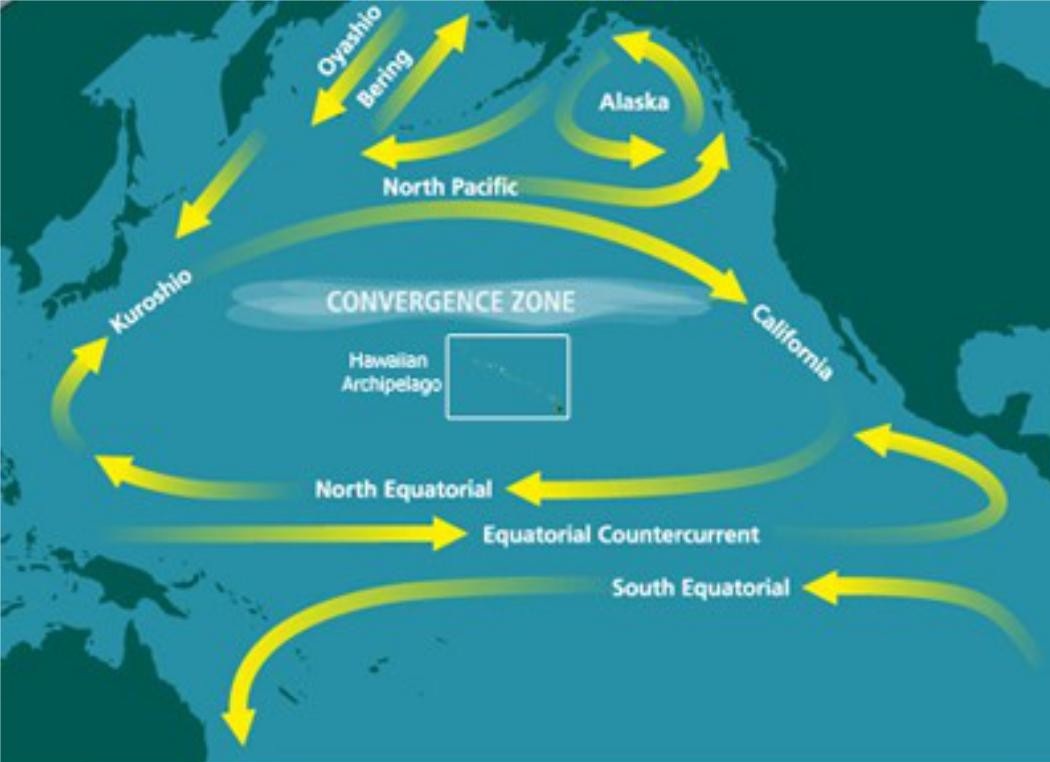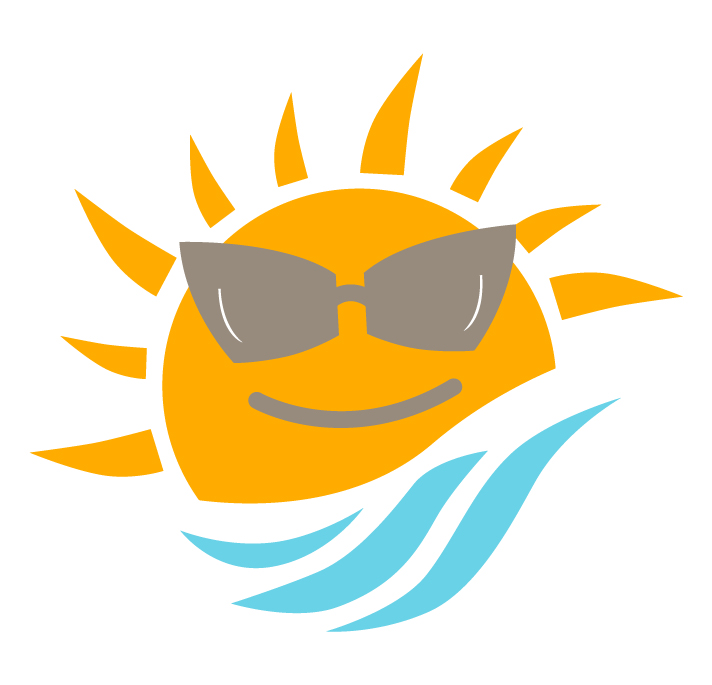By Terry Sovil from the October 2017 Edition
There is a great deal of concern, discussion and, in some countries, denial on protecting our resources. One of our most crucial resources is water. If our oceans die, we will too. We all share a common resource so we need to work together! What can regular citizens, divers, snorkelers, boaters and fisher-men do?
First, you have to admit that there is a problem. Capt. Charles Moore found the Great Pacific Garbage Patch (Pacific Gyre).
This is his description:
“…on the way back to our home port in Long Beach, California, we decided to take a shortcut through the gyre…Fishermen shun it because its lacks nutrients to support fish. Sailors dodge it because it lacks the wind to propel their sailboats…as I gazed from the deck at the surface of what ought to have been a pristine ocean, I was confronted, as far as the eye could see, with the sight of plastic…I never found a clear spot. In the week it took to cross…no matter what time of day I looked, plastic debris was floating everywhere: bottles, bottle caps, wrappers, fragments”.
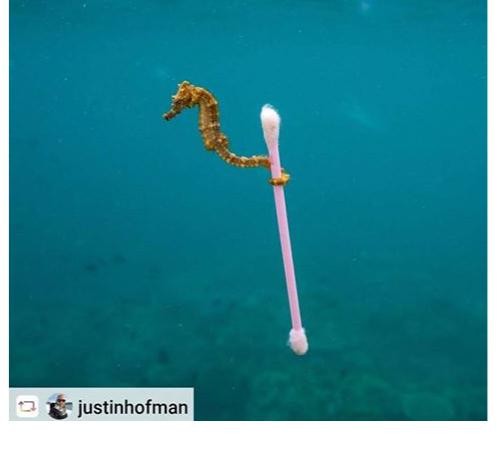
Two thirds of the Earth is covered by water with less than one third land. As populations grow, we put increasing pressure on our waters. This is a human problem because it is relatively
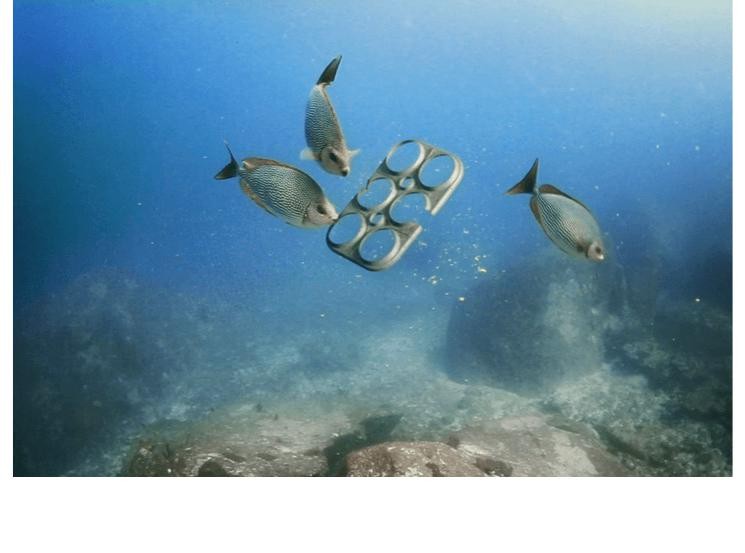
new. As industrialization and population grew, pollution spread. Some still think the oceans are too big to pollute but, with 7 billion people, it is obvious there are limits and pollution shows we have exceeded those limits.
The World Wildlife Fund: “Pollution from toxic chemicals threat-ens life on this planet. Every ocean and every continent, from the tropics to the once-pristine polar regions, is contaminated.”
EVERYONE
Drinking water
- Invest in a portable glass or stainless-steel water bottle and stop using plastic bottles
- Buy a home water-filtration system – a modest $20 carbon filter will help
Reduce carbon (energy) consumption
- Carbon dioxide from fossil fuels; makes oceans more acidic
- Ride a bike, take a bus, walk
- Get high-efficiency appliances and light them off when not in use
- Turn the thermostat up a bit
Other ways
- Use reusable plastic products
- Properly dispose of hazardous materials
- Get a couple of tote bags or a plastic box and leave the plastic bags at the store
- Use less fertilizer
- Pick up garbage and litter near beaches, especially six-pack holders and plastic bags
- Buy ocean-friendly products that don’t exploit marine life
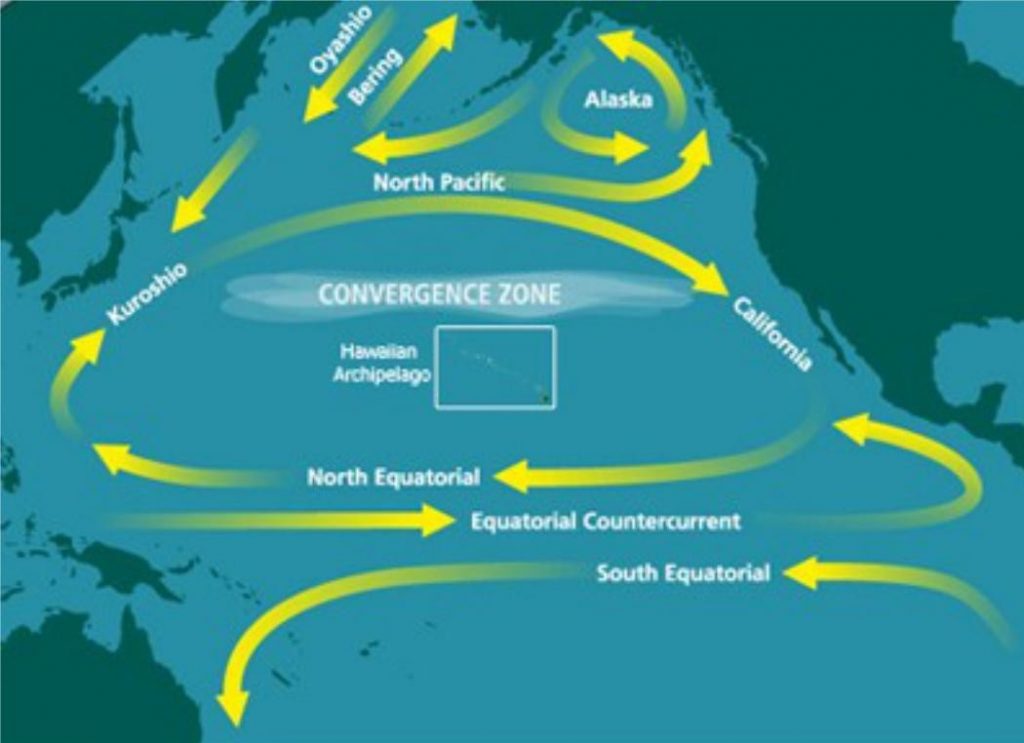
On a larger, community scale, there are things you can help influence with your opinion and your votes.
- Sewage treatment and disposal
- Nutrients, fertilizers and runoff from farms or industry
- Waste water – discharge from factories
- Chemical waste – highly toxic chemicals such as PCBs and heavy metals
- Radioactive waste – I look at Fukushima in Japan and shudder
- Oil pollution – increasing opposition to transport and pipe-lines
Alien, invasive species
- By way of the accidental introduction of the Lionfish into the Caribbean, where they have no natural enemies, they are taking over
- Zebra mussels in the Great Lakes
- Alien jellyfish and algae types
- If your locality has laws, follow them
Pets
- Read labels and choose sustainability
- Never flush cat litter
- Avoid wild-caught fish for your aquarium
- NEVER release, or flush, aquarium fish (potentially invasive)
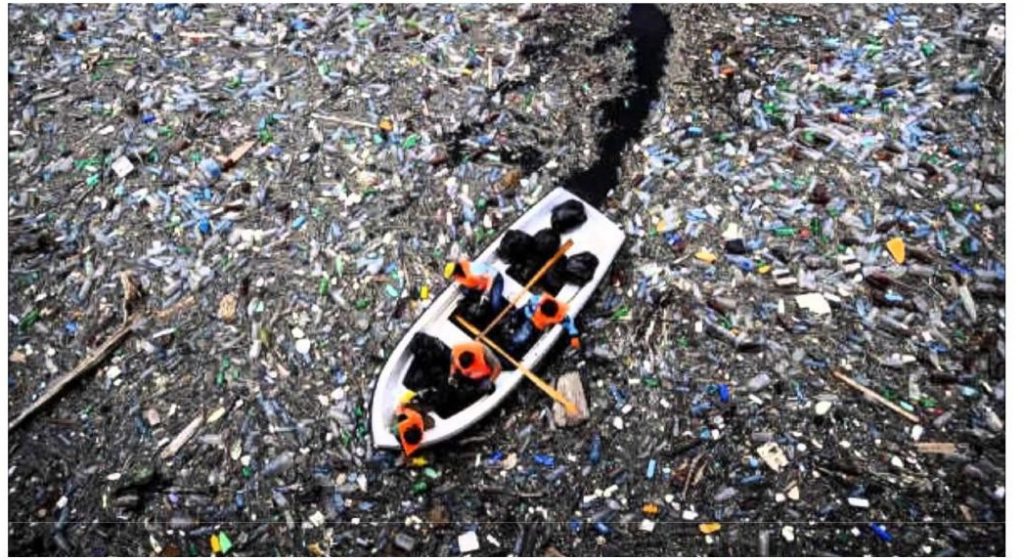
Laws
- Difficult because water does not have boundaries
- Oceans, rivers and lakes cross borders
- Cooperation is critical
- Educate yourself about water issues
- Support increased water regulations
- Vote responsibly, contact your representatives
- Influence change in your community
Scuba divers and snorkelers
- Use your buoyancy compensator and fins correctly; appropriate buoyancy control is essential – Learn! Take a Peak Performance Buoyancy Class
- Watch your fins and where you are kicking
- Don’t touch the corals or the critters
- Corals have a thin, sensitive membrane, touching it can break it and cause an infection
- Touching it or kicking it can break it off
- Touch a critter and risk a defensive bite or sting
- Don’t let your equipment hang loose! Secure it!
Boaters and fishermen
Boating goes with wildlife watching, photos, scuba, snorkeling and fishing. Clean water enhances these experiences. Mishandling a boat can cause much damage.
Oil and fuel
- Diesel fuel and motor oil are toxic to people, plants and fish
- They can block sunlight which gives life
- Fill your tank only 90% to prevent overflows
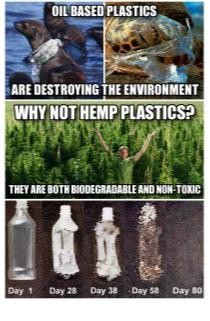
- Use oil absorbent pads in bilges
- Inspect your thru-hull fittings
- DO NOT use soaps on spills
Sewage
- Install a toilet as specified by law
- Use pump-out services when available
- Bring portable toilets ashore for proper disposal
Vessel and maintenance repair
- Use nonhazardous materials
- Old batteries can leak, dispose of them properly
- When you paint your hull, choose products carefully
- Use non-toxic cleaning products
- Discard worn parts carefully, watch for oil
- Dispose of trash in the proper bins
Trash
- Bring food and beverage containers, cigarette butts back to shore
- Tell your marina if they need better waste collection
Anchoring
- Choose sites carefully and use proper techniques
- Do NOT anchor on coral, look for a sandy bottom
- Avoid boating in shallow water
- Know where to go slow to avoid wakes
Global fisheries are on the verge of collapse
- Eat sustainable seafood
- Using this as a Google search key: “Sustainable seafood wallet card”, ind the card(s) for your area(s)
- Print it or download it and secure a photo for your phone
- Three quarters of the world’s fisheries are now overexploited
People have to be made aware which is the first step to solving the pollution problem. Surfers in Britain were getting sick from sewage-polluted water. They formed a group called “Surfers Against Sewage” to help force governments and water companies to clean up and stop dumping sewage. Sport fisherman have banded together to force change in industrial pollution to improve their catch.
I hate the 4-6 can plastic holders. Animals get caught in a “loop” and it can kill them. I cut every loop and then throw them away. I pick them up off the street and beach. We should switch to HEMP for making plastics! I found a live fish caught in a piece of lost, broken net and was not able to free it. I had no way to cut the net. I started wearing a dive knife again!
Remember that while the oceans are big and vast they have limits. When you throw something in the garbage or on the beach remember there is no “away”.
Download the full edition or view it online
—
Terry is a founding partner and scuba instructor for Aquatic Sports and Adventures (Deportes y Aventuras Acuáticas) in Manzanillo. A PADI (Professional Association of Dive Instructors) Master Instructor in his 36th year as a PADI Professional. He also holds 15 Specialty Instructor Course ratings. Terry held a US Coast Guard 50-Ton Masters (Captain’s) License. In his past corporate life, he worked in computers from 1973 to 2005 from a computer operator to a project manager for companies including GE Capital Fleet Services and Target. From 2005 to 2008, he developed and oversaw delivery of training to Target’s Loss Prevention (Asset Protection) employees on the West Coast, USA. He led a network of 80+ instructors, evaluated training, performed needs assessments and gathered feedback on the delivery of training, conducted training in Crisis Leadership and Non-Violent Crisis Intervention to Target executives. Independently, he has taught hundreds of hours of skills-based training in American Red Cross CPR, First Aid, SCUBA and sailing and managed a staff of Project Managers at LogicBay in the production of multi-media training and web sites in a fast-paced environment of artists, instructional designers, writers and developers, creating a variety of interactive training and support products for Fortune 1000 companies.
